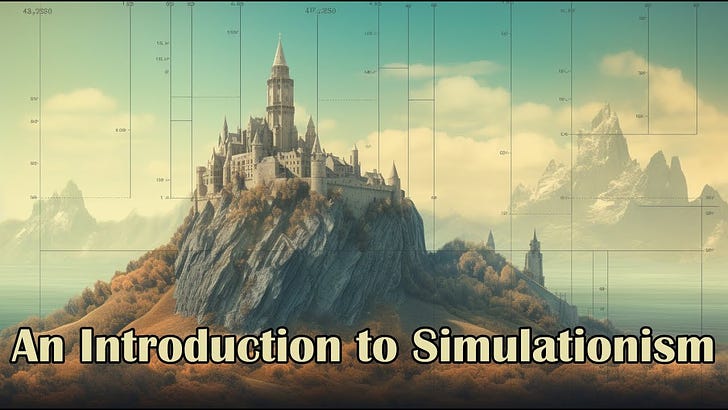Alex Macris over at Arbiter of Worlds recently put out a video going back over and expanding a bit on aspects of simulationism in RPGs":
Well worth your time, but it occurred to me that while TSR, the Forge, and others shifted tabletop RPGs into a more narrative mode, there remained a strong desire to play in simulations - and if there’s one thing that computers can do - it’s crunch a lot of numbers in the background that would otherwise render a game utterly unwieldy.
I’m not talking games like Civ here, or even Minecraft, which also - along with Sim City, 4x games, and the like - show that people wanted something that was more simulation driven than purely game driven.
One can certainly argue that JRPGs like Final Fantasy - I spent way too much time on my SNES with FF3 - have simulation aspects, but even more or less fo a sandbox element, they are all generally driven by a story. The same is true of Baldur’s Gate, NeverWinter Nights, and the Divinity series of CRPGs.
I’m talking roguelikes: games like Nethack, and Dungeon Crawl Stone Soup. Or the Caves of Qud. Also, to an extent, this includes games like Dwarf Fortress which may not work precisely like a TTRPG but are very much a simulation of a fantasy world, with you directing the goals of where to dig, and then seeing which dwarves live, die, or go insane.
Nethack is not the first, as it is an outgrowth of the earlier games Hack and Rogue, the first of which gave a name to the entire genre: “Roguelikes.”
Leaving aside the grid movement and relatively primitive graphics, all of these games as well as other games with roguelike inspired play involve a world that is procedurally generated - effectively stocking the dungeon from random charts like you can do with AD&D and ACKs. They are all simulations - the rules of the world are set, and you go explore, and you can run into anything from the incredibly easy to the overpoweringly and instantly deadly relative to your capabilities. There may be a goal, of sorts, but the only path is to explore, and find the path, which will be different every time. One time, an altar can help you, the next, severely handicap you. Be very wary of what you eat or drink.
These may have been small indie titles, never achieving widespread acclaim, but these games scratched the itch for a simulationist RPG experience, and arguably helped keep the concept alive even as TTRPGs were taken over by the drama kids who wanted to tell a cool story, instead of to find one.








As I get older I find I much prefer dipping into something like "Dwarf Fortress" and allowing it to surprise me than play a long-winded AAA game that has a "story" it wants to tell me which I'll probably find vapid anyway.
Thanks for reminding me ! I was looking for the Name ! It was Dungeon Crawl stone soup !